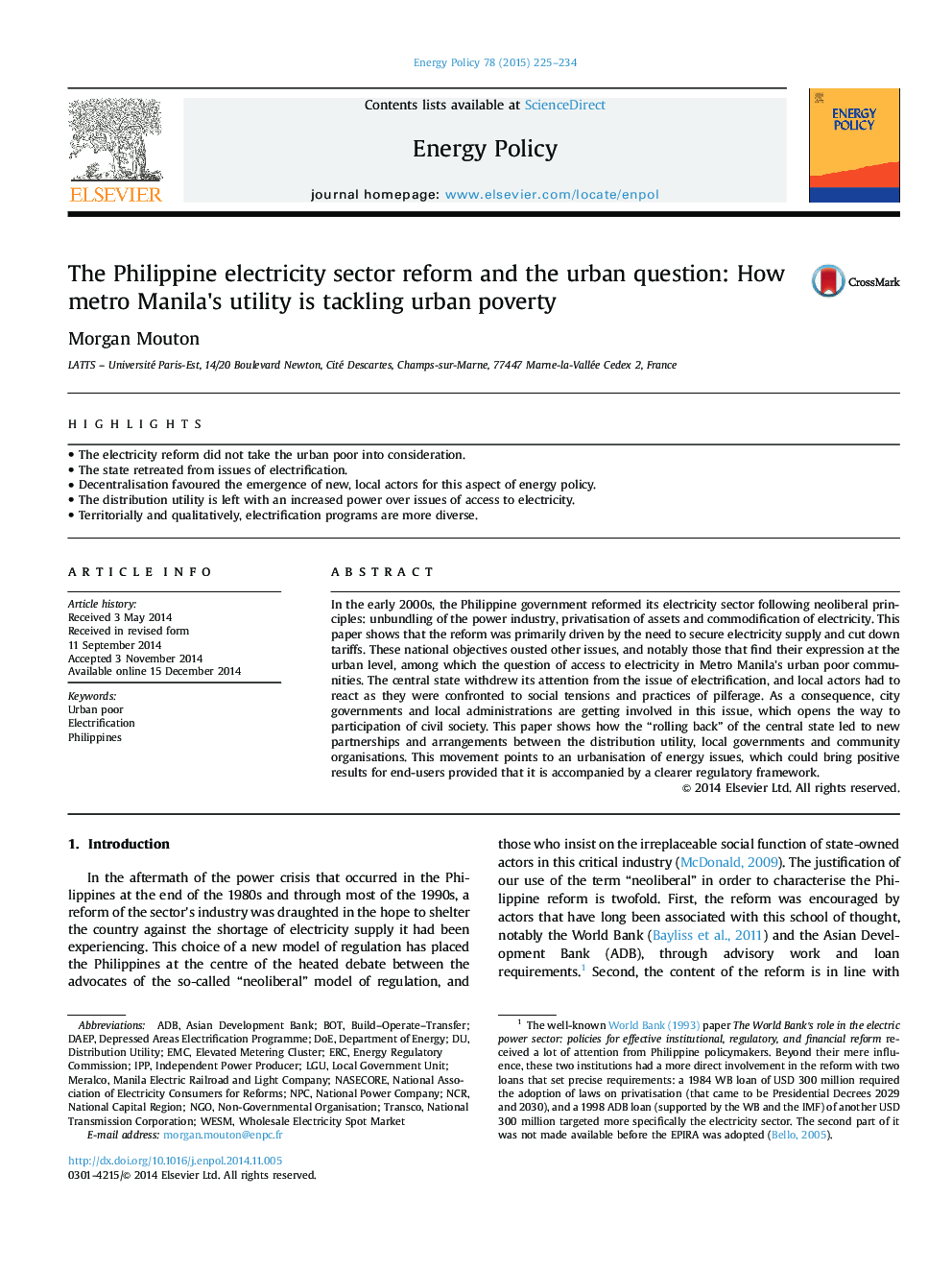| Article ID | Journal | Published Year | Pages | File Type |
|---|---|---|---|---|
| 995445 | Energy Policy | 2015 | 10 Pages |
•The electricity reform did not take the urban poor into consideration.•The state retreated from issues of electrification.•Decentralisation favoured the emergence of new, local actors for this aspect of energy policy.•The distribution utility is left with an increased power over issues of access to electricity.•Territorially and qualitatively, electrification programs are more diverse.
In the early 2000s, the Philippine government reformed its electricity sector following neoliberal principles: unbundling of the power industry, privatisation of assets and commodification of electricity. This paper shows that the reform was primarily driven by the need to secure electricity supply and cut down tariffs. These national objectives ousted other issues, and notably those that find their expression at the urban level, among which the question of access to electricity in Metro Manila's urban poor communities. The central state withdrew its attention from the issue of electrification, and local actors had to react as they were confronted to social tensions and practices of pilferage. As a consequence, city governments and local administrations are getting involved in this issue, which opens the way to participation of civil society. This paper shows how the “rolling back” of the central state led to new partnerships and arrangements between the distribution utility, local governments and community organisations. This movement points to an urbanisation of energy issues, which could bring positive results for end-users provided that it is accompanied by a clearer regulatory framework.
